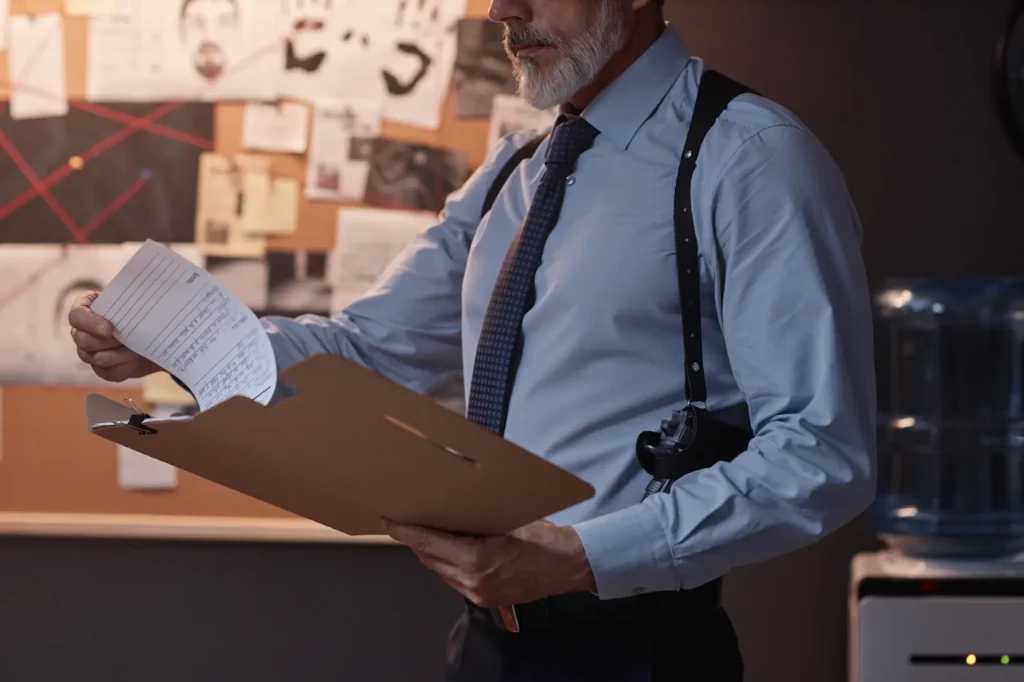
When someone runs a background check, they want to gather essential details about your past to help make informed decisions. Whether you’re applying for a job, renting a home, or volunteering, the question arises: what shows up on a background check? While the specifics can vary depending on the type and purpose of the check, most background screenings reveal information such as criminal records, employment history, education, credit details, and other relevant details. Understanding what may appear in these reports can help you prepare and avoid surprises that could impact your opportunities.
Understanding the Purpose of Background Checks
Background checks are essential tools employers, landlords, and agencies use to verify an individual’s identity, history, and qualifications. Whether you’re applying for a job or signing a lease, there’s a good chance someone will run a background check on you. This process assesses risk, ensures safety, and confirms trustworthiness. For many, the question becomes: what shows up on a background check?
Information Found on and Types of Background Checks
Background checks come in several forms, each designed to uncover specific types of information depending on the situation. From employment screenings to tenant evaluations, the kind of background check determines the details reviewed.
Criminal History and Arrest Records
The most widely known element of background checks is the criminal history report. Criminal background checks may reveal convictions for felonies and misdemeanors, pending charges, and, in some cases, arrests that did not lead to convictions. However, the scope and detail depend on the state’s laws and the depth of the check.
Sex Offender Registry Information
A comprehensive background check may also involve a search of national and state sex offender registries, widespread in checks for roles involving vulnerable populations, such as children, older adults, or individuals with disabilities. That information will typically be included if a person is listed in these registries.
Employment History and Verification
Employment verification is a critical part of many background checks. This verification involves contacting past employers to confirm job titles, dates of employment, and reasons for leaving. Some checks also assess job performance, though this depends on the former employer’s willingness to share that information. If you’re wondering what shows up on a background check when applying for a job, be prepared for employers to validate your entire work history.
Educational Background Checks and Credentials
Employers and institutions often want to confirm that candidates have the degrees and certifications they claim. Educational verification ensures applicants have completed the programs they list on their resumes. False claims about degrees, diplomas, or schools attended can easily be discovered during this part of the background check.
Credit Reports and Financial Records
Credit checks are commonly included for positions that involve handling money, sensitive financial data, or access to company assets. These background checks may show credit scores, debt levels, bankruptcies, and late payment histories. While employers cannot see specific account numbers or detailed credit transactions, an individual’s overall financial responsibility can influence hiring decisions.
Driving Records and Motor Vehicle Background Checks
A background check may include a motor vehicle report if a job involves driving. This report provides insight into driving history, including violations, accidents, license status, and DUIs. Employers use this to determine whether a candidate is a safe and responsible driver.
Civil Court Records and Lawsuits
Background checks can also include a review of civil litigation history, such as involvement in lawsuits, evictions, or restraining orders. While not all civil cases are directly relevant to job or rental decisions, repeated litigation or patterns of legal conflict may raise concerns. It’s essential to understand that even non-criminal legal records can sometimes appear.
Social Security Number Background Check
A Social Security number (SSN) trace confirms a person’s identity and reveals any aliases or former names. This trace also helps uncover an individual’s address history and any discrepancies in their personal information. SSN tracing is one of the first steps in many background checks, serving as a foundation for further searches.
Address History and Residency
Background checks often reveal a history of previous addresses. This information is gathered through credit reports, voter registration data, and other public records. Address history helps verify identity and ensure consistent application data. It can also indicate where to check for additional court or criminal records.
Professional Licenses and Certifications
Background checks often include license verification for roles in regulated industries such as healthcare, law, or finance. This verification ensures that the candidate’s professional credentials are valid and active. If a license has been suspended or revoked, it will usually appear in the results. Employers in these sectors rely on background checks to maintain regulatory compliance and ensure the safety of the public.
Employment Eligibility and Immigration Status
Employers must verify that new hires are legally allowed to work in the United States. Employment eligibility verification involves verifying documents such as green cards, work visas, and citizenship papers. While this check is conducted separately using Form I-9 and E-Verify systems, the findings often integrate into a broader background check process.
Social Media and Online Presence
In today’s digital world, some employers incorporate a review of social media profiles and online behavior into their background checks. While this practice is controversial, it helps employers assess a candidate’s public persona, communication style, and potential red flags. It’s wise to review your digital footprint before applying for jobs.
Background Checks With Military Service Records
Employers may verify an applicant’s military experience as part of the background check. Military records include dates of service, discharge status, rank, and assignments. While access to some military information is limited, discharge papers and service verification are generally available with the individual’s consent.
Do Background Checks Feature Drug Test Results?
Although not technically a background check, many employers pair pre-employment background screenings with drug testing. Drug test results are typically handled separately due to privacy laws; however, they remain part of the overall vetting process for many positions, particularly those involving safety-sensitive duties.
Information Not Included in Background Checks
Understanding what doesn’t appear on a background check is just as important. Privacy laws typically protect medical records, genetic information, and personal lifestyle details. Background checks also do not include protected characteristics like race, religion, sexual orientation, or disability status, as this information is irrelevant and discriminatory to consider.

Federal vs. State vs. County Background Checks
Not all background checks pull from the same sources. Some checks focus only on federal databases, while others incorporate state and county-level records. County records are typically the most detailed and accurate, but they can take longer to obtain. When evaluating the information that appears on a background check, it’s essential to consider the comprehensiveness of the search across various jurisdictions.
Consent and Legal Compliance With Background Checks
The Fair Credit Reporting Act (FCRA) governs most background checks in the United States. Employers must obtain written consent before conducting a background check. If any adverse decision is made based on the results, the applicant must be notified and given a chance to dispute or explain the findings. Background checks must be conducted fairly and consistently, without any form of discrimination.
Errors in Background Checks
Despite the best efforts of screening companies, errors can occur. These may include mistaken identity, outdated information, or incorrect criminal records. You can dispute the information with the reporting agency if you believe a background check contains errors. Keeping your records updated and periodically checking your background report can help prevent inaccuracies.
How to Prepare for a Background Check
To prepare for a background check, review your credit report, verify your employment and education records, and resolve any outstanding legal issues. Be honest on applications, as inconsistencies are often caught. If you have a criminal record, be prepared to explain it and demonstrate how you’ve moved forward. Transparency and preparation go a long way.
Industries That Rely Heavily on Background Checks
Specific industries conduct more rigorous background checks than others. Healthcare, finance, education, and law enforcement have higher standards due to the nature of the work. Jobs in government and defense often require deep security clearance checks. In these fields, what appears on a background check can significantly impact hiring decisions.
How Long Do Background Checks Take
The timing varies depending on the depth and scope of the project. Basic checks can be completed in as little as 24 hours, while more comprehensive screenings involving multiple jurisdictions and agencies can take several days to weeks. International background checks may require even more time, mainly when translating documents or waiting on foreign records.
Technology’s Role in Modern Background Checks
Modern background checks benefit from technology that aggregates data from multiple sources in real-time. Artificial intelligence and machine learning tools are increasingly used to identify inconsistencies, flag potential issues, and streamline the process. However, human oversight remains essential for interpreting nuanced records and ensuring a fair evaluation.

The Future of Background Checks
As privacy laws evolve and technology continues to advance, background checks will likely become more precise and subject to increased regulation. We may see increased transparency for job seekers and tighter restrictions on the use of information. Employers must stay current with compliance standards while striking a balance between risk mitigation and fairness.
What Shows Up on a Background Check and Why it Matters
Understanding what appears on a background check is crucial for anyone entering the job market, renting a property, or seeking a professional license. These checks can significantly impact major life decisions, so it is crucial to understand what information is being reviewed and how to verify its accuracy. By being proactive and informed, individuals can confidently navigate background screenings and present themselves in the best possible light. For more information about background checks, please visit our Arkansas Investigations blog.

